


Jason P
gamer level 7
16942 xp
16942 xp
followers
34
34
Use my invite URL to register (this will give me kudos)
https://boardgaming.com/register/?invited_by=jasonpanella
profile badges




recent achievements

Follow a Local Game Store
Follow a local game store. The purpose of following is to get notifications when comments are added to the board.
Follow a local game store. The purpose of following is to get notifications when comments are added to the board.

Intermediate Reviewer
Review 8 games and receive a total of 380 positive review ratings.
Review 8 games and receive a total of 380 positive review ratings.

Novice Advisor
Submit 10 game tips, strategies, or house rules and receive a total of 270 positive ratings.
Submit 10 game tips, strategies, or house rules and receive a total of 270 positive ratings.

Treasure Map
Explore select games by completing a series of exploration actions. learn more »
Explore select games by completing a series of exploration actions. learn more »
Player Stats
Critic (lvl 3)
1225 xp
1225 xp
Explorer (lvl 2)
527 xp
527 xp
Professor (lvl 3)
1424 xp
1424 xp
Reporter (lvl 2)
463 xp
463 xp
About Me
I love lots of different games: co-op, abstract strategy, "Ameritrash," LCGs, roleplaying games, European-style, you name it. Some of my favorites include Lewis & Clark, Innovation, The Lord of the Rings LCG, Android, Eclipse, Robinson Crusoe, Castles of Burgundy, Battlestar Galactica, Trajan (anything by Stefan Feld, really), Shadowrun (3rd Ed.), Deadlands (classic), SpyCraft, Ravenloft (3.5), and Dungeons & Dragons 5E.
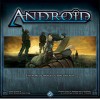

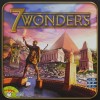



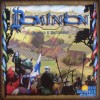

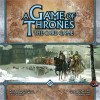
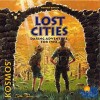



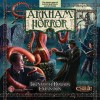


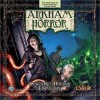
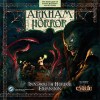
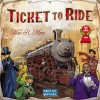













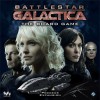



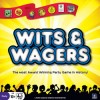





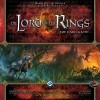





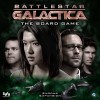






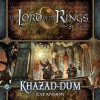






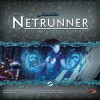

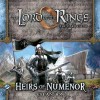








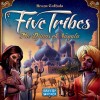








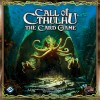

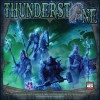





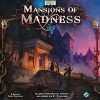


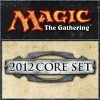
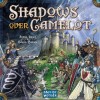
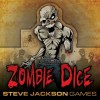





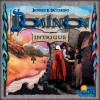




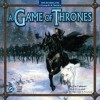



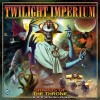







Android
Fantasy Flight’s Android was released quietly toward the tail end of 2008. It’s gained a sort of cult following since (two, actually — those who love it and those who hate it). The game takes place in a hard-boiled near-future setting (which borrows elements liberally from both film noir and cyberpunk), and follows a group of characters who are trying to balance their personal lives as they investigate a murder. I think it’s an incredible game, though certainly not for everyone.
Android plays out over the course of two weeks. Each player has a limited amount of time each day, and has lots of choices on how to spend that time. Players can send their characters out to follow up on the leads scattered throughout the board, which can then be used to further investigate the murder itself (and subsequently place evidence on suspects) or the conspiracy behind it (by connecting puzzle pieces on the board to hopefully get victory point modifiers at the end of the game). Players can also spend time gaining favors with various institutions in the game world (which you can spend on various things), or spend time trying to improve the circumstances in the character’s life (you can do this by playing cards you can gain each turn). All of these elements can influence the events happening in your character’s personal life, which progresses every few game days.
What I love
The focus is on the characters, not on the murder — Each of the five playable characters come with rich back stories — they all have different goals, personalities and flaws. There are a number of murder scenarios that each game is framed around, but that’s basically it…a framing. The action is really focused on how the investigation changes the characters. Will the bitter private investigator finally put his past behind him? Will the corrupt cop make things right with his family? Will the android learn not to take life for granted? The game milks some noir and sci-fi clichés, but they fit right in and surprisingly don’t feel too worn.
The game is dripping with theme — Designers Kevin Wilson and Dan Clark did a fantastic job making the Android setting richly atmospheric and nuanced. The game is set in two places: New Angeles, an incredibly large city-state in what was once Ecuador; and Heinlein, New Angeles’s sister colony on the Moon. Both are filled with interesting locations and people. The backstories behind some of the game’s locations and characters are threaded throughout the game. It feels alive, and always makes me want to learn more about the world in the game. (That said, so much of the game’s charm depends on the atmosphere, and that’s easy to miss if you ignore the flavor text.)
There are some really neat mechanics at work in Android — In a way, Android is several mini-games assembled into one whole. There are a variety of things your character can do in a day, and you can only do so many — will you search for clues to help prove your murder suspect guilty, or will you work peeling back the veil to see if there’s a conspiracy? Or will you ignore both and focus on making your own life as stable as possible? I love that diving into the conspiracy involves placing puzzle pieces on the board, and I also love how placing evidence (good or bad) on the suspects can involve several layers of bluffing and deceit. There are also a number of cards you can play to give your character a benefit or hinder another player, and you have to manage how you play them. All of these elements tie into each other, too, which is cool — sometimes playing a dark card against another player will hurt them in one area, but also positively affect their character’s personal life.
What I have mixed feelings about
Length of play — A rule of thumb is that each player adds a full hour of game time on (not including set up!). Playing with five people can be a blast, but can also be quite a tiring experience…five hours is a lot of time!
Steep learning curve — There is a lot to grasp in this game, for both game mechanics and strategy. Not only are there many rules to learn, but each character has certain pros and cons that might be too much to take in on the first few plays. Some of the dark cards are triggered by certain events (if the character playing Rachel has less than three cards in her hand, for instance, something bad might happen). Trying to keep this in mind when you’re still figuring out the basics can be pretty daunting and ultimately pretty frustrating to a new player.
A few other thoughts
I think Android is a frequently misunderstood game, so I always try to set the record straight when I can. As I’ve mentioned before, it’s not a game for everyone, but a lot of people excitedly purchase the game with certain expectations and then swear the whole thing off once they see it’s not what they had initially thought.
Android is not a deduction game — Unlike Clue, Mystery of the Abbey or other deduction games, there is no clear answer to who the murderer is at the end of the game. Your character has a hunch to who the murder is (or isn’t) — are they right? In a postmodern turn, that’s up to you to decide. Maybe your character finds the murderer at the end of the game through great police work. Or maybe they frame the suspect. Regardless, Android was never advertised as a “murder mystery” game…it’s a game about murder, though!
Android isn’t unbalanced…it’s just vicious — Some of the dark Twilight Cards are particularly brutal to other players, even causing players to lose entire turns. This isn’t unbalanced, though, since all of the player aids that come with the game give clear warnings to the players. If you’re playing Raymond Flint, for instance, you need to avoid hanging onto Kate favors or getting into fights on the moon. Or for Rachel, you need to make sure you pay attention to how many cards you have in your hands. If you don’t, you’ll get hurt.
Android’s mechanics make thematic sense, even if it might seem like they don’t — It seems like Kevin Wilson, the game’s designer, put a lot of time and effort into this area. The conspiracy puzzle gets singled out a lot…why is that in the game? Because if your character puts time and effort into it, you get to see the “big picture” of how everything is connected. (Even the bonus points for five pieces in a row make sense here too.) Same goes for the baggage on your plot cards. Ray, for instance, gets good baggage if he avoids the old flame in his life and instead focuses on the conspiracy (since the old flame is bad news, and Ray is a good P.I. who should be focusing on his work). And why are your characters detectives if you’re not “detecting” who actually committed the murder? Because this game is based on noir!
Final thoughts
Android is easily my favorite game, though a hard one to get to the table. I love setting, I love how the mechanics click, and I love how challenging it is. That said, it’s a hard sell for many gamers, and an even harder game to get people to fall in love with.